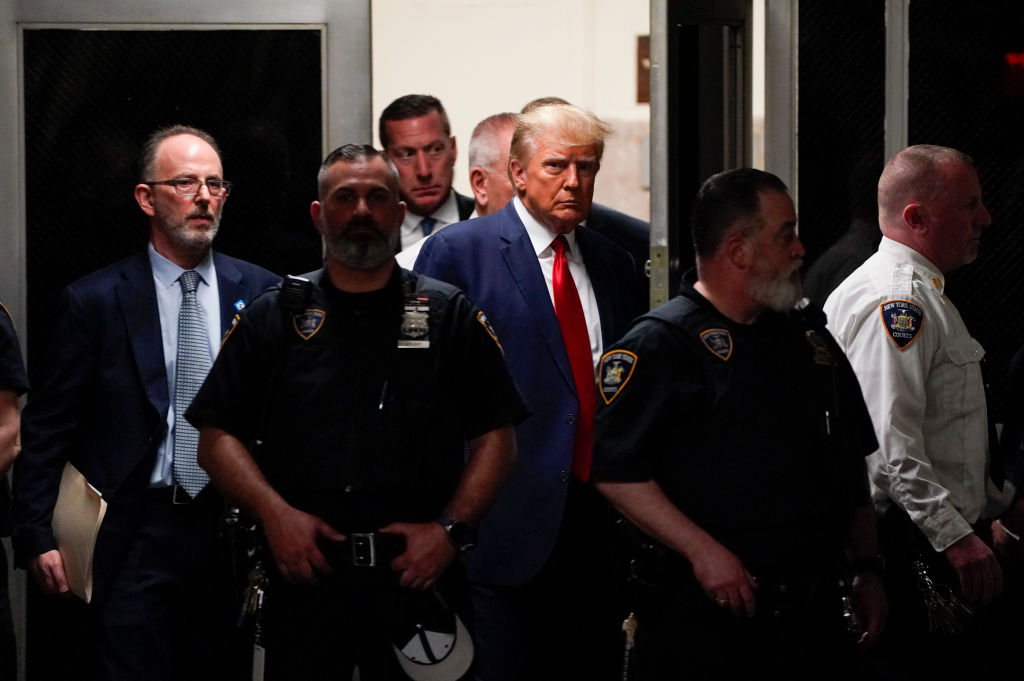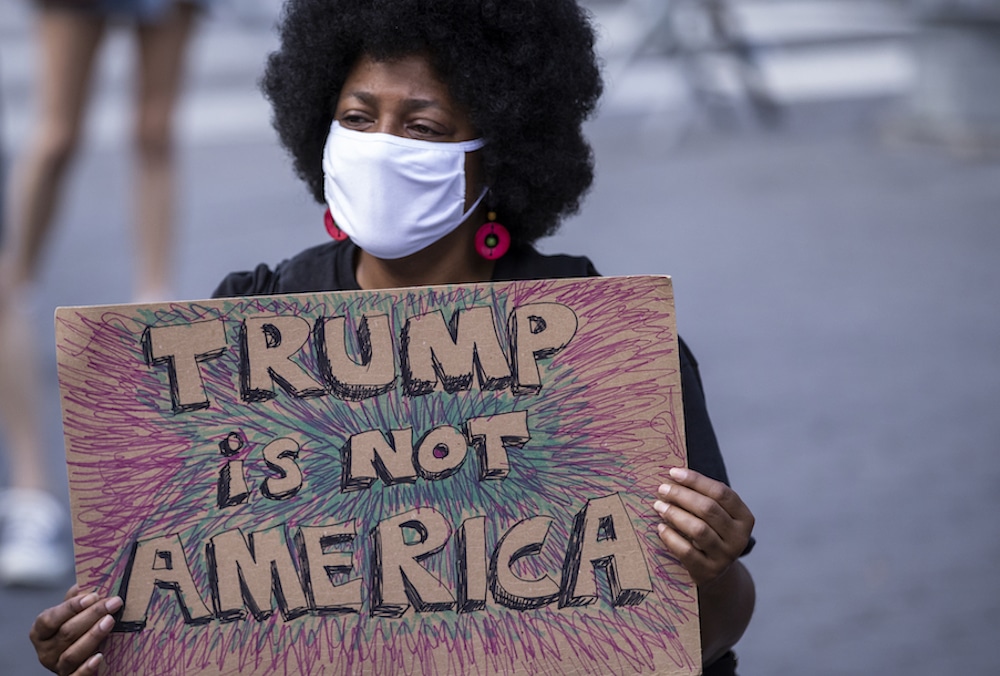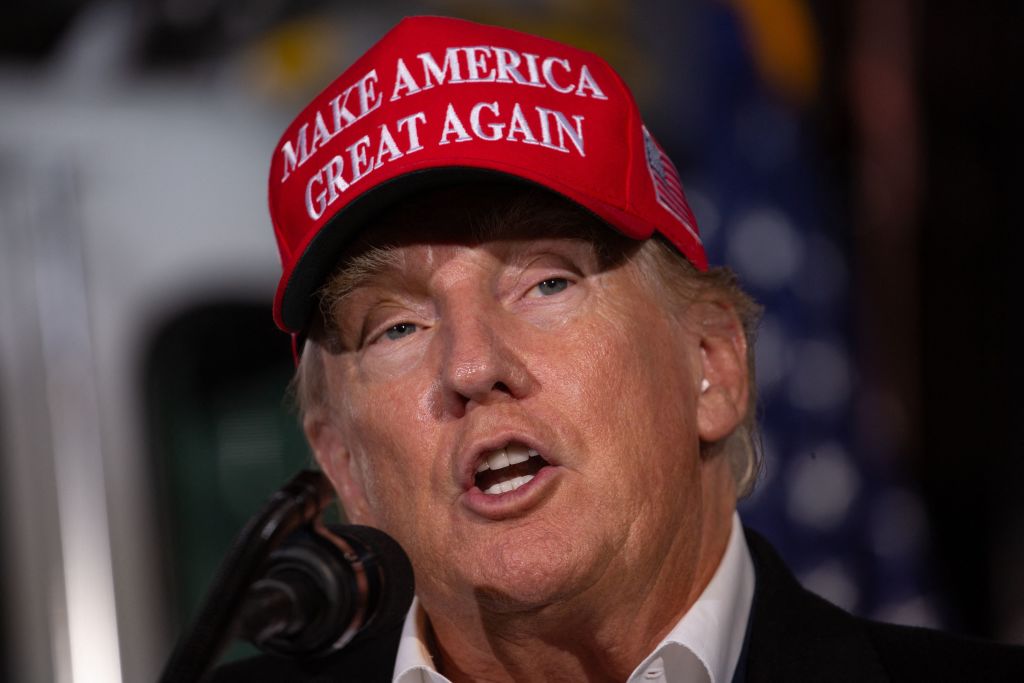Donald Trump’s arrest could be final nail for his political career – but it’s not all good news

Donald Trump is the first president to be arrested and charged with a crime. (Getty)
Donald Trump being arrested and charged raises questions about whether his presidential run can or should continue – but his fate is far from sealed.
The former president appeared at a Manhattan courthouse after being arrested on Tuesday (4 April), pleading not guilty to 34 counts of falsifying business records.
In most cases, falsifying records is treated as a misdemeanour, but Trump stands accused of committing felony offences, indicating prosecutors believe his alleged crimes are more serious. If convicted, he could face prison time.
It’s yet to be seen whether Trump’s criminal charges will embolden or hinder his goal to get back into the White House. Trump has survived scandal after scandal, with each one seemingly strengthening his support instead of decimating it. There’s no precedent to follow, but there’s nothing in the US constitution preventing a convicted criminal from becoming president – even one serving jail time.
Many now believe Trump’s criminal charges could lead to him winning more popular support – but that’s far from a sure thing, says Dr Samer Anabtawi, assistant professor in political science at University College London (UCL).
“We have quite a bit of research in political science that points to the opposite direction of what some of the pundits are saying,” Dr Anabtawi tells PinkNews.

“Some of the pundits are saying he’s actually going to use this in his favour, he’s likely to benefit from this, it’s going to boost donations to his campaign and so forth.
“However, some of the research that we have been reading in political science and psychology in the last couple of years may point in the opposite direction. We have research which shows that incivility [bad behaviour] on average tends to decrease support for politicians even within their own political base, and that is apparently true also for Donald Trump supporters, including some of the hardliners within his base.”
While Trump’s political career up until now flies in the face of much of that research – he has survived countless scandals, including allegations of sexual assault – that’s because the negative effect of “incivility” varies depending on media coverage, or lack thereof, and how easily people can access accurate information about a candidate.
Dr Anabtawi says how the whole thing pans out is somewhat dependent on how right-wing media like Fox News and the Republican Party responds to Trump’s latest crisis.
“We’ve seen lots of criticism come out on Fox News recently against Donald Trump in ways we haven’t seen in the past, so how he’s being covered by the right wing media, how he’s going to be treated by some of the potential nominees within the Republican Party, and by the party itself, is going to shape the significance of this moment for Trump.”

Needless to say, Trump will try to spin the criminal charges in his favour – something he’s done successfully before in the face of scandal.
“He’s going on the attack. There’s news coming out suggesting that he’s probably not even listening to his own advisors, that he’s going to continue to talk to the media, continue to go out on the offence, show that he’s strong, that he’s resilient, but that he’s now being persecuted.
“How much longer he’s able to sustain this narrative is yet to be seen… whether that narrative sticks is unclear at the moment. We have research that shows that on average politicians do actually experience a negative effect on their popularity.”
Donald Trump’s opponents are also anti-LGBTQ+ rights
There’s no telling if Trump will be convicted – many pundits say the case against him relies on untested legal theory.
But it’s entirely possible that the charges will help his main rival for the Republican nomination, Florida governor Ron DeSantis.
Dr Anabtawi points out that DeSantis is just as bad, if not worse.
“If Donald Trump is to go away, the replacements for him in the Republican establishment are unlikely to be any better on LGBTQ issues. The record has shown that already with Ron DeSantis.
“I don’t think that Donald Trump being on trial is going to be of benefit to the LGBTQ community… so far we haven’t seen the Republicans being able to offer anything substantive on policy and so instead they want to distract, they want to deflect, and a way to do that is by upping the ante on LGBTQ issues, stoking up moral panics and so forth.

“That’s the strategy that all sorts of authoritarian leaders around the world engage in to distract their citizens from their failures and from the lack of legitimacy they have.”
If Trump does manage to weather the storm and emerge as the Republican nominee for the 2024 presidential election, he will almost certainly put anti-trans attacks at the centre of his campaign, says Alex Paterson, senior researcher at Media Matters.
“For years, right-wing media and conservative officials have baselessly fear mongered about trans equality and Trump has vowed to take this anti-trans crusade to the White House. His second term in office would be devastating to LGBTQ people,” Paterson says.
“Transphobic vitriol has become a central talking point in the right’s manufactured culture wars and has coincided with increased rates of violence against LGBTQ people. Trump’s attacks on the trans community will further radicals members of his political base into extreme anti-trans views.”
As Trump faces into what can only be described as the most serious political scandal of his career, Paterson is calling on mainstream media outlets to “learn from their past failures” and to “adequately report on Trump’s extreme anti-LGBQT positions”.
“In the lead up to the 2024 election, Trump has aligned himself with anti-trans bigots and vowed to restrict access to gender affirming health care — and mainstream news outlets must properly contexualize Trump’s long record of attacking LGBTQ rights, center trans voices in coverage, and avoid framing the rights of the queer community as part of a culture war.”

